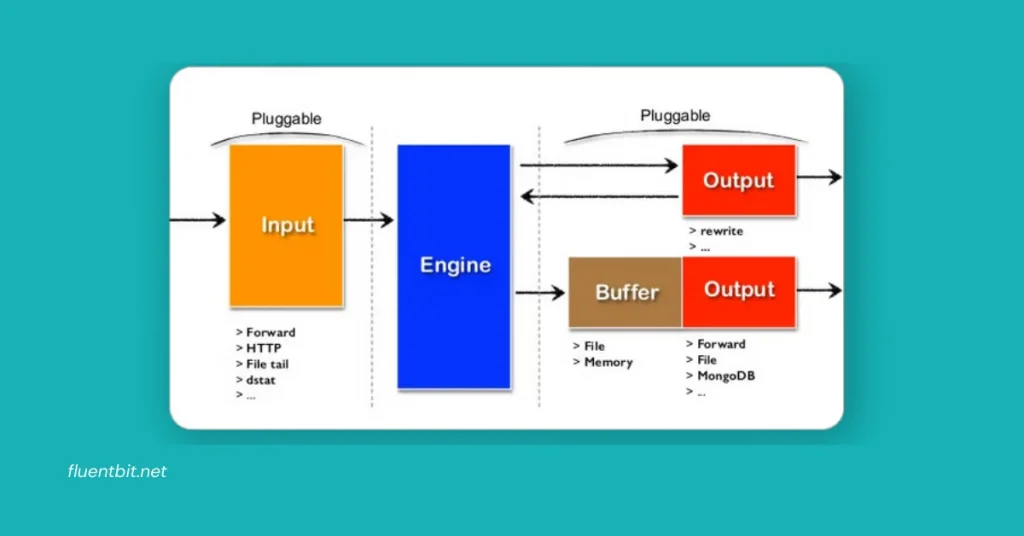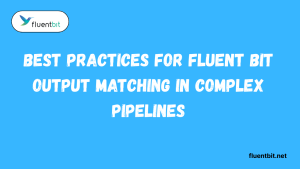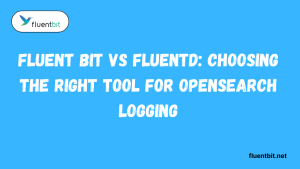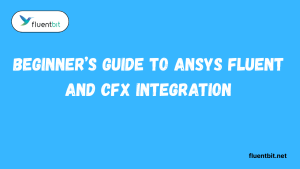Table of Contents
ToggleIntroduction
In today’s digital landscape, where data is the lifeblood of businesses, efficient log data collection and processing have become crucial for gaining valuable insights and ensuring smooth operations. Log data, generated by various applications and systems, provides a wealth of information about system performance, user behavior, and potential issues.
However, managing and processing this data can be a daunting task, especially as the volume and complexity of logs continue to grow. To address this challenge, open-source data forwarders like Td-Agent-Bit vs Fluent Bit have emerged as powerful tools for streamlining log data collection and processing.
In this article, we will delve into the world of Td-Agent-Bit vs Fluent Bit, exploring their features, use cases, and the key differences between the two.

Td-Agent-Bit vs Fluent Bit: Optimizing Log Data Collection and Processing
Deployment
When it comes to deploying log data collection agents, the choice between Td-Agent-Bit and FluentBit depends on the specific environment and requirements.
- Td-Agent-Bit is available in packages tailored to specific Linux distributions, making it a straightforward option for traditional server environments.
- On the other hand, Fluent Bit is a standalone binary that can be easily deployed across various platforms, including edge devices, containers, and microservices architectures.
Resource Usage
Resource efficiency is a crucial consideration in modern computing, especially in environments where resources are limited.
- Fluent Bit stands out in this regard, boasting a lightweight design that makes it ideal for resource-constrained environments like containers or embedded systems.
- In contrast, Td-Agent-Bit requires more memory resources, which can be a significant drawback in environments where resources are scarce.
Plugins
The range of plugins available for log data collection agents can significantly impact their functionality and versatility.
Fluent Bit offers a wider range of built-in plugins, providing users with more options for processing and filtering log data.
Td-Agent-Bit, on the other hand, relies on external plugins, which may not be as extensive or well-maintained as those available for Fluent Bit.
Use Cases
The choice between Td-Agent-Bit and Fluent Bit ultimately depends on the specific use case and environment.
- Td-Agent-Bit is better suited for traditional server environments where resource usage is not a significant concern.
- Fluent Bit, with its lightweight design and extensive plugin support, is ideal for edge devices, containers, and microservices architectures where efficiency and flexibility are paramount.
Td-Agent-Bit vs Fluent Bit Choosing the Right Log Data Forwarder:
Factors to Consider
When selecting the appropriate log data forwarder for your system, several key factors come into play.
Firstly,
- consider the deployment environment. If you are operating in resource-constrained environments like containers or embedded systems, Fluent Bit’s lightweight design and small memory footprint of around 1MB make it a compelling choice.
- On the other hand, Td-Agent-Bit, with its packages tailored to specific Linux distributions, may be more suitable for traditional server environments.
Secondly,
- Take into account resource limitations. Fluent Bit’s efficient resource usage makes it ideal for environments where memory resources are limited, ensuring optimal performance without excessive resource consumption.
- In contrast, Td-Agent-Bit, while effective in traditional server setups, may require more memory resources, which could be a concern in resource-constrained environments.
Lastly,
- Consider plugin requirements. Fluent Bit offers a wide range of built-in plugins, providing flexibility and extensibility in processing and filtering log data.
- On the other hand, Td-Agent-Bit relies on external plugins, which may limit its capabilities compared to Fluent Bit in certain use cases that require diverse plugin support.
Multi-Tier Architecture Integration
In a multi-tier architecture setup, leveraging both Fluent Bit and Td-Agent-Bit can offer a comprehensive log data management solution.
- Fluent Bit, with its efficiency and lightweight design, is well-suited for edge collection tasks, efficiently gathering and processing log data from various sources in resource-constrained environments.
- On the other hand, Td-Agent-Bit can be utilized for central processing, handling the aggregated log data from Fluent Bit and performing more extensive processing, analysis, and storage tasks in a traditional server environment.
By combining Fluent Bit for edge collection and Td-Agent-Bit for central processing, organizations can create a robust and scalable log data management system that optimizes resource usage, plugin capabilities, and deployment flexibility across different tiers of their architecture.
This integration allows for efficient log data collection, processing, and analysis, catering to the diverse needs of modern computing environments.
Conclusion
In the world of log data collection and processing, Td-Agent-Bit vs Fluent Bit have emerged as two powerful open-source data forwarders, each with its own strengths and use cases.
When choosing between Td-Agent-Bit vs Fluent Bit, it is essential to consider factors such as deployment environment, resource limitations, and plugin requirements.
Td-Agent-Bit, with its tailored packages for specific Linux distributions, is well-suited for traditional server environments where resource usage is not a significant concern. Its reliance on external plugins may limit its capabilities in certain scenarios, but it remains a reliable choice for organizations operating in server-centric setups.
On the other hand, Fluent Bit’s lightweight design and small memory footprint make it an ideal choice for resource-constrained environments like containers and embedded systems.
FAQs
Q: What are the key differences between Td-Agent-Bit and Fluent Bit?
A: The primary differences lie in their deployment environments, resource usage, and plugin support. Td-Agent-Bit is designed for traditional server environments and relies on external plugins, whereas Fluent Bit is lightweight and ideal for resource-constrained environments like containers and embedded systems, with a wider range of built-in plugins.
Q: Which data forwarder is more suitable for resource-constrained environments?
A: Fluent Bit is the better choice due to its lightweight design and small memory footprint, making it an ideal solution for environments where resources are limited.
Q: Can I use both Td-Agent-Bit and Fluent Bit together in a multi-tier architecture?
A: Yes, combining Fluent Bit for edge collection and Td-Agent-Bit for central processing can create a comprehensive and optimized log data management solution. Fluent Bit’s efficiency in edge collection and Td-Agent-Bit’s central processing capabilities make them a powerful duo for managing log data across different tiers of an architecture.
Q: Which data forwarder has a wider range of built-in plugins?
A: Fluent Bit offers wide range of FluentBit built-in plugins, providing users with more options for processing and filtering log data.
Q: Which data forwarder is better suited for traditional server environments?
A: Td-Agent-Bit is designed for traditional server environments and is well-suited for these setups due to its tailored packages for specific Linux distributions.
Latest Post:
- Best Practices for Fluent Bit Output Matching in Complex Pipelines
- Setting Up Fluent Bit with Open Telemetry for Unified Observability
- Fluent Bit vs Fluentd: Choosing the Right Tool for OpenSearch Logging
- How to Use fluent-plugin-opensearch for Fluentd Pipelines
- Is Ansys Fluent Better for Complex Fluid Flow Simulations?












